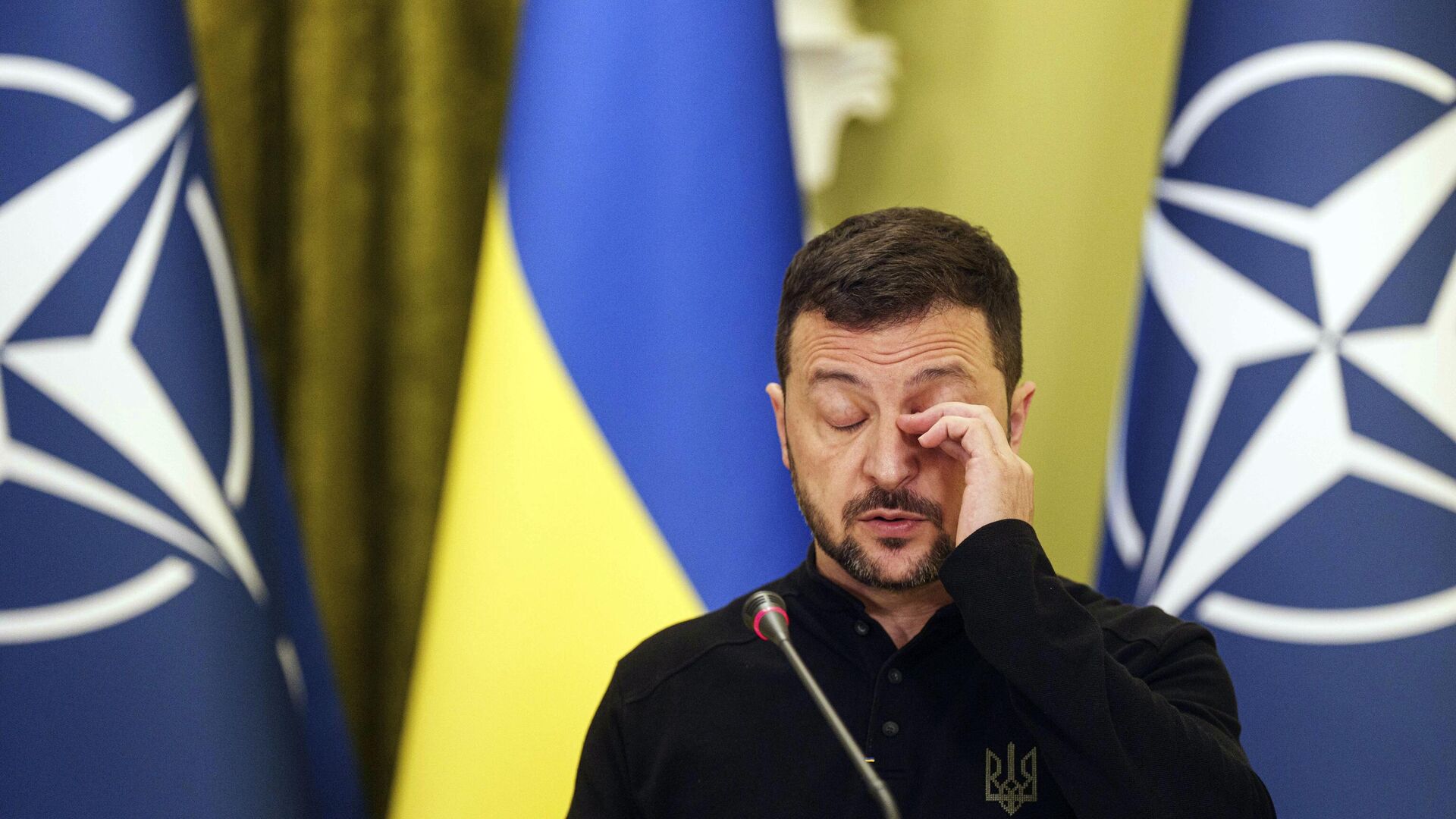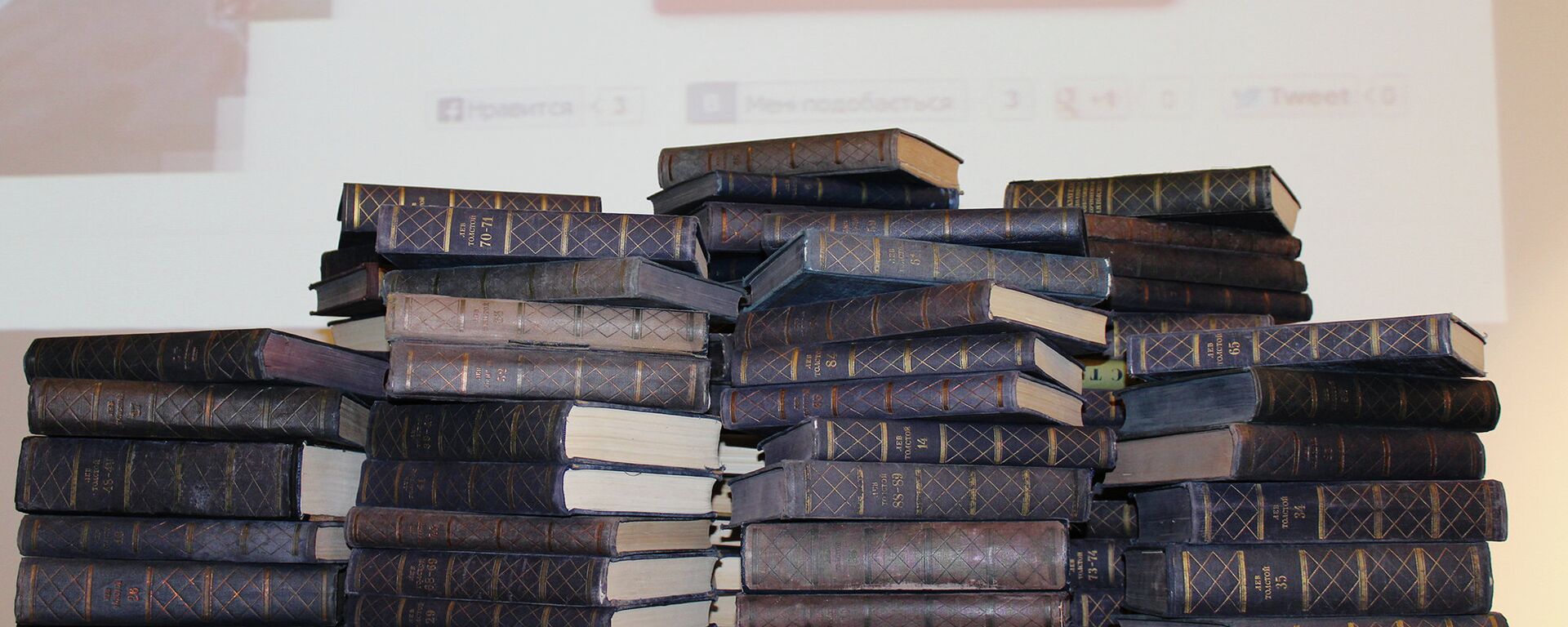Water as Weapon of War: How Ukraine Failed

© AP Photo / Evgeniy Maloletka
Subscribe
We are all living in extreme times that teach us a lot of valuable lessons. We learn what we can and what we cannot do to large masses of people. Or, to say it better, it’s the large masses of people that are teaching us these lessons.
Ukraine’s failed attempt to starve its former Eastern territories for water so as to subjugate them, should stay in memories of many nations for centuries to come.
We all are connected to each other by water flows. China and India, Sudan and Egypt, Tajikistan and Uzbekistan and many others share big rivers that, theoretically, should be binding them together, but, instead, are often increasing strains. Again, theoretically such nations should, one day, develop a kind of international norm of not making water a weapon of war, ever.
We all are connected to each other by water flows. China and India, Sudan and Egypt, Tajikistan and Uzbekistan and many others share big rivers that, theoretically, should be binding them together, but, instead, are often increasing strains. Again, theoretically such nations should, one day, develop a kind of international norm of not making water a weapon of war, ever.
Going back to the sad case of Ukraine, the water problem came to everyone’s attention this week, when Denis Pushilin, the head of one of Russia’s new territories in the former East Ukraine, came to Moscow and met Russia’s President Vladimir Putin. Suddenly, all the TV channels, not to mention the press, were filled with images of heavy machinery cleaning the clogged water flows and the trucks carrying the huge water barrels. It means that Russia’s new territories are beginning to tackle seriously their water quagmire.
We are talking about a very old problem coming, at last, to the national and, hopefully, to international attention. That problem is, first, in Ukraine’s failure to maintain the water works in its former Eastern territories after gaining independence in 1991. And, second, when these territories rebelled in 2014 and 2022, Ukraine has completely cut their water supply, horrible consequences for millions of people be damned.
What’s most interesting, is the net result of that inhuman experiment, as of today. But we’ll leave that for the final paragraphs of this column.
East Ukraine, or Donbass, is a vast industrial and technologically developed area that basically depended on one powerful river and one big water-pump station near the city of Slavyansk. The problem was, since the year 1991 the authorities in Kiev did not care to maintain that system, several decades old. Estimates are, it was losing half of the water on the way. That was one of the problems of Ukraine of yesterday: its East and South being severely neglected even in the times of relative peace and unity.
Then along came the coup of 2014, with the ensuing armed rebellion in the East and South. Kiev has cut the water supply to Crimea with three million people living there (and nobody said anything about how it was possible to do such a thing), after Crimea had seceded. But other areas, called Donbass, were relatively safe, since half of Donbass stayed Ukrainian until 2022, and so everyone was getting water. Finally, in 2022, a sizeable part of Donbass became liberated, and the mentioned water station has been shut down completely.
City of Slavyansk is now the only major area of Donbass that remains in Ukrainian hands. It may be a heavily fortified fortress, but right now the rapid advance of the Russian troops leaves few doubts about its fate. Pushilin’s visit to Putin was, in fact, a demonstration that the time has come for the final solution of the water problem.
That final solution is about the complete rebuilding of that water station in Slavyansk, not to mention the fact that Ukrainians have been systematically destroying all the canals and water pumps around the area without any apparent military goals. Restoration of the whole system will take about three years.
In the meantime, all kind of stopgap measures will have to be implemented. The Russian TV, almost all the channels, are demonstrating, these days, what kind of measures these are. That’s how we know about clogged rivers and streams being cleaned, same with reservoirs. Huge truck platforms with oversize blue water tanks have long been standing at intersections of cities and villages. Collecting rain water has become an art.
And, finally, thousands of volunteers from all over Russia are trying to help. There is that problem of old people who cannot walk properly, not to mention the idea of going down the stairs to get a huge water bucket from the yard. These people have to be helped all the time. If and when folks from all places in Russia go to these new Russian territories, they fill their cars’ seats with standard 5-liter water bottles, which seem to be the best gift there is.
What we have here is an interesting problem of human communities, and, indeed, of all the humanity’s ideas of what is permissible and what is not, in war or peace. It’s still proper and obligatory to treat the wounded soldiers of the enemy same as your own soldiers, right? Right, though there are many examples of that principle being ignored in this or that dark corner of the world. But, still, it’s a matter of what is human and what is not.
Then there is that principle of not using civil population as a living shield in conflicts, though too many players ignore that norm, Ukraine included. But still the principle, as a general norm, is relatively alive. So you can establish yet another principle, as in “you cannot use water as a weapon, ever”, is that so?
The problem here is that the very idea of common threats to communities and all the humanity has been seriously abused recently. You proclaim such threat, saying that climate is one for all the planet. Then you create a well-paid science of your own to prove your points, ignoring other scientists, disgusted at that situation. And then you press nations into signing all kind of treaties on the subject. Then, finally, you discover it doesn’t work out as well as you expected. And we have not even started to talk about the similar obligatory ideas of the medical lobby.
The problem is, probably, that universal norms of human behavior have to precede and transcend the international law. Here we are talking about something deep, more about religions that about legislations. And religious norms are the end product of centuries of human interaction. Simply speaking, first, people themselves collectively decide what is thinkable and what is not, and only second you put it on paper, be it a holy book or a legal document.
So, it’s very educative to look at how the people of the former East Ukraine withstood the water strangulation, imposed on them by their former Western brothers. First, they kept their dignity as human beings. They made a kind of a cult of keeping themselves clean with what water they could get. There is that almost sacred procedure of ladies going to a spa to do their nails and the rest. Russian ladies all over the land do it, too, but not with that fervor.
And, second, nobody has even tried to think about Donbass and Crimes going back to the days of being a part of Ukraine. It’s bad enough when your former brothers are shelling, daily, residential quarters of the cities and villages of Donbass, year after year. But if these ex-brothers also cut the water supply, that’s a kind of a final cut and a point of no return. Because that’s water, and you don’t do such things to it, ever.
Dmitry Kosyrev is a Russian writer, author of spy novels and short stories. He also did columns for the Pioneer and Firstpost.com
The compact version
We all are connected to each other by water flows. China and India, Sudan and Egypt, Tajikistan and Uzbekistan and many others share big rivers that, theoretically, should be binding them together, but, instead, are often increasing strains.
And then there is Ukraine that is losing its former territories. Their water problem came to everyone’s attention this week, when Denis Pushilin, the head of one of Russia’s new territories in the former East Ukraine, came to Moscow and met Russia’s President Vladimir Putin. Suddenly, all the TV channels, not to mention the press, were filled with images of heavy machinery cleaning the clogged water flows and the trucks carrying the huge water barrels.
East Ukraine, or Donbass, is a vast industrial and technologically developed area that basically depended on one powerful river and one big water-pump station near the city of Slavyansk. The problem was, since the year 1991 the authorities in Kiev did not care to maintain that system, several decades old. Estimates are, it was losing half of the water on the way.
Then along came the coup of 2014, with the ensuing armed rebellion in the East and South. Kiev has cut the water supply to Crimea with three million people living there (and nobody said anything about how it was possible to do such a thing), after Crimea had seceded. In 2022, a sizeable part of Donbass became liberated, and the mentioned water station has been shut down completely.
City of Slavyansk is now the only major area of Donbass that remains in Ukrainian hands. It may be a heavily fortified fortress, but right now the rapid advance of the Russian troops leaves few doubts about its fate. Pushilin’s visit to Putin was, in fact, a demonstration that the time has come for the final solution of the water problem.
That final solution is about the complete rebuilding of that water station in Slavyansk. Restoration of the whole system will take about three years. In the meantime, all kind of stopgap measures will have to be implemented.
What we have here is an interesting problem of human communities, and, indeed, of all the humanity’s ideas of what is permissible and what is not, in war or peace. It’s still proper and obligatory to treat the wounded soldiers of the enemy same as your own soldiers, right?
These universal norms of human behavior have to precede and transcend the international law. Simply speaking, first, people themselves collectively decide what is thinkable and what is not, and only second you put it on paper, be it a holy book or a legal document.
So, it’s very educative to look at how the people of the former East Ukraine withstood the water strangulation, imposed on them by their former Western brothers. First, they kept their dignity as human beings. They made a kind of a cult of keeping themselves clean with what water they could get. There is that almost sacred procedure of ladies going to a spa to do their nails and the rest. Russian ladies all over the land do it, too, but not with that fervor.
And, second, nobody has even tried to think about Donbass and Crimes going back to the days of being a part of Ukraine. If these ex-brothers cut the water supply, that’s a kind of a final cut and a point of no return. Because that’s water, and you don’t do such things to it, ever.
Dmitry Kosyrev is a Russian writer, author of spy novels and short stories. He also did columns for the Pioneer and Firstpost.com

